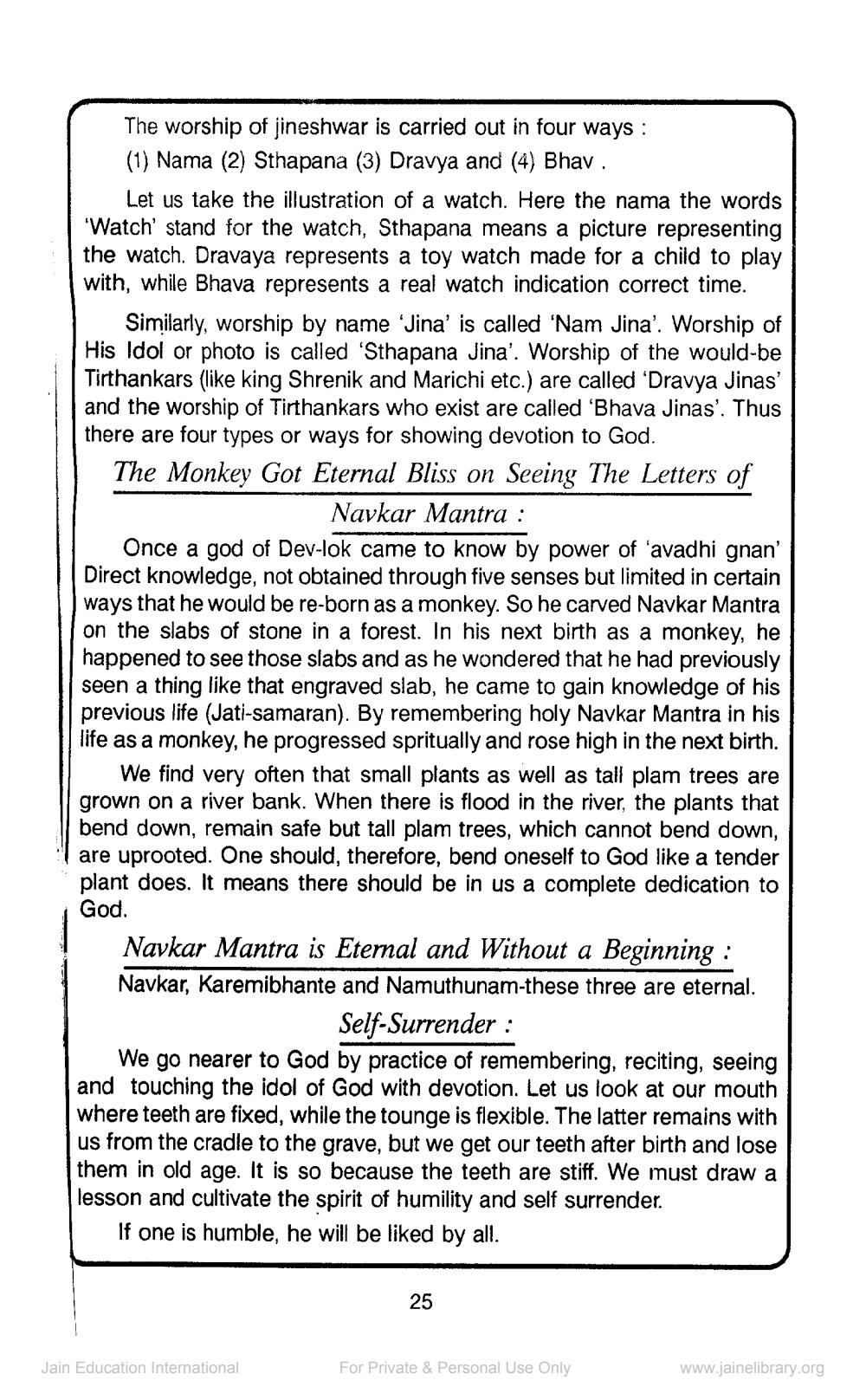________________
The worship of jineshwar is carried out in four ways: (1) Nama (2) Sthapana (3) Dravya and (4) Bhav.
Let us take the illustration of a watch. Here the nama the words "Watch' stand for the watch. Sthapana means a picture representing the watch. Dravaya represents a toy watch made for a child to play with, while Bhava represents a real watch indication correct time.
Similarly, worship by name 'Jina' is called 'Nam Jina'. Worship of His Idol or photo is called 'Sthapana Jina'. Worship of the would be Tirthankars (like king Shrenik and Marichi etc.) are called 'Dravya Jinas' and the worship of Tirthankars who exist are called 'Bhava Jinas'. Thus there are four types or ways for showing devotion to God. The Monkey Got Eternal Bliss on Seeing The Letters of
Navkar Mantra : Once a god of Dev-lok came to know by power of 'avadhi gnan' Direct knowledge, not obtained through five senses but limited in certain ways that he would be re-born as a monkey. So he carved Navkar Mantra on the slabs of stone in a forest. In his next birth as a monkey, he happened to see those slabs and as he wondered that he had previously seen a thing like that engraved slab, he came to gain knowledge of his previous life (Jati-samaran). By remembering holy Navkar Mantra in his life as a monkey, he progressed spritually and rose high in the next birth
We find very often that small plants as well as tall plam trees are grown on a river bank. When there is flood in the river, the plants that bend down, remain safe but tall plam trees, which cannot bend down, are uprooted. One should, therefore, bend oneself to God like a tender plant does. It means there should be in us a complete dedication to God.
Navkar Mantra is Eternal and Without a Beginning : Navkar, Karemibhante and Namuthunam-these three are eternal.
Self-Surrender : We go nearer to God by practice of remembering, reciting, seeing and touching the idol of God with devotion. Let us look at our mouth where teeth are fixed, while the tounge is flexible. The latter remains with us from the cradle to the grave, but we get our teeth after birth and lose them in old age. It is so because the teeth are stiff. We must draw a lesson and cultivate the spirit of humility and self surrender.
If one is humble, he will be liked by all.
25
Jain Education International
For Private & Personal Use Only
www.jainelibrary.org




